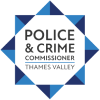Childhood Abuse
What is childhood abuse?
Child abuse can include neglect as well as physical, emotional and sexual abuse. In many cases people experience more than one type of abuse. If you were abused as a child it’s important to remember that it’s not your fault or because of anything that you did. Abusive behaviour towards children is always wrong and never the child’s fault.
Around 1 in 4 adults, both male and female, have experienced abuse as a child. Some victims find that with the support of their family and friends they are able to move on from their childhood abuse. But for many survivors talking about the abuse to someone who is professional, caring and independent, is an important part of recovering from the impact of the crime.
Childhood abuse can affect people in different ways. You may have reported the abuse as a child or never spoken to anyone about it or even only just recently remembered the abuse. However, as an adult you may find the fear and negative emotions associated with the abuse may return or be triggered by life experiences such as becoming a parent, a bereavement or an unrelated crime.
Abuse in childhood can also leave you feeling very confused. You may be left questioning your own memories of the abuse or wondering if you could have done something to stop what happened. It’s important to remember that you were a child and the abuser manipulated you in order to harm you.
Survivors may also feel guilty because they have engaged in risk taking or unhealthy behaviours as a result of abuse. This may include alcohol or substance abuse, criminal activity or avoiding medical help. These are common responses to childhood abuse and support services will understand this and help you develop positive coping strategies.
Emotional Health
Not everybody who has experienced childhood abuse will also experience emotional or mental health difficulties. However, it is estimated that over 50% of people may have the following symptoms that last into adulthood:
- anxiety
- depression
- post-traumatic stress
- sleep disorders
- self-harm and/or suicidal thoughts
Physical Health
Childhood abuse can also have an impact on your physical health and can show itself in many ways.
Opening up about childhood abuse can be incredibly difficult. You may have kept your experience secret for years and are worried about the impact it will have on your family.
If you were abused by someone you know or love, the effects may be even greater. As well as the experience itself, you’ve had your trust broken at an early point in your life and this can have a lasting negative impact on your relationships with other people and be a barrier to developing a positive sexual identity.
Many survivors find that talking to a specialist agency or independent person, such as a GP, is a first step to understanding what has happened and working out how to move forward.
If you feel you need support then please contact Victims First by visiting Get Support Now. We can work with you to help you process and manage the impact of the abuse.
Reporting to the police that you have been a victim of child sexual abuse is a big decision. Many adult survivors carry the burden of their abuse for years before deciding to speak out, and some never do.
The following film developed by Operation Hydrant, working with Police Scotland, is aimed at providing supportive information to adult victims and survivors of child abuse who may be thinking of reporting to police and wondering what comes next.
You can click on the image below to watch the video on Youtube.


